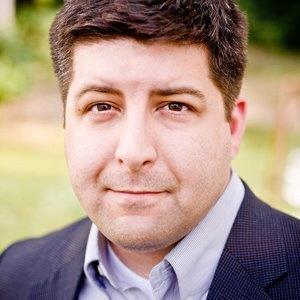Given all the brouhaha between Martha Boneta’s Paris Farms and the utter and inexcusable harassment she has received at the hands of Fauquier County, this was a rather refreshing look at the importance of small farmers:
They answer to no one. They can make jam, build retaining walls, throw together a loaf of bread, make soap, sew scrub suits for the daughter who’s a nurse, install an outdoor wood-burning furnace. Melvin has even been known to come in from milking at 2am and pick up whatever history book he’s currently reading and not get to bed until dawn. It’s a demanding way to live, but Jennifer and Melvin love it. Small farmers have to love what they do, because they’re not in it for the money.
What makes this article truly interesting is Anne Buchanan’s reflection on the distance between academics such as herself, and those who really do work with their hands and run small farms — like her sister, who operates a goat farm in Vermont:
Snow was saddened that, by 1959, his literary friends no longer understood the concept of acceleration or mass, and his scientist friends no longer read Dickens.
Snow’s concern was not so much that people ought to share a culture for its own sake, but that without a shared intellectual culture, we would not be equipped to address the problems of the modern world. In particular, he worried about overpopulation, nuclear war, and the increasing gap between rich and poor nations. Ultimately, in spite of the two cultures divide, he believed that science would solve these problems, and that, for example, there was absolutely no reason that poverty would not be eliminated by the year 2000.
Snow’s lecture was published as a book, Two Cultures and the Scientific Revolution (1959), which is still available today, and still widely read, at least among academics. Some of his predictions, such as the end of poverty, were so wrong that it’s easy to characterise him as terribly naive. And, 50 years on, the idea that it’s possible to be well-educated in both science and the humanities is pretty much a pipe-dream. With the exponential growth of knowledge, particularly in science and technology, it’s hard to see how it could be any other way. (emphasis added)
This distance, one might assert, is the very problem that many small farmers face, whether it’s against encroaching suburbia that prefers the smells and sounds of the farm be obliterated in favor of pretty pink houses, or an white-collar class that has so quickly forgotten that food doesn’t come from a can, nor objects for consumption simply conjure themselves up from China.
It is an interesting concept that once upon a time, many Americans could have been expected to read from the same canon of literature. Today, this is increasingly unlikely. Whether on politics or religion, on how to make things versus their direct application, our modern American education system does not seem to be up to the task of offering us a single starting point — a problem touched upon by thinkers such as Cass Sunstein and further explored by Matthew Crawford as it relates to our ability to make things.
Today, we have a class of specialists in America who simply consume, but do not make. Small farmers and the act of growing things help make that connecting bond between intellectualism and practicality in the spirit of Thomas Jefferson — when the world was arguably smaller and the limits of human knowledge fairly Newtonian in scope.
Perhaps Buchanan is touching on something here that we moderns could desperately learn from. The act of creating and tending to things — whether that’s raising goats, a small 4×4 plot of dirt, a farm, or even picking up a trade — is one step to bridging that gap.
Another item? Rebuilding the American canon of “required reading” for the liberal arts. You can pick up on shades of this from your high school English and History classes that once upon a time, Shakespeare and Wheatley, Steinbeck and Hemingway, Thurston and Thoreau, Emerson and Dickinson, Jefferson and Hamilton, Lincoln and Kennedy once occupied this hallowed space.
Today, I doubt this canon once readily identified by those who embraced the humanities early as a student are shared with similar enthusiasm among college freshmen more preoccupied with the rigors of a college schedule (or not) rather than an imposition of the highlights of American culture.
We have, in short, lost the American canon of literature, and from there the starting point which would allow the farmer and the specialist to converse.
Pity that.

